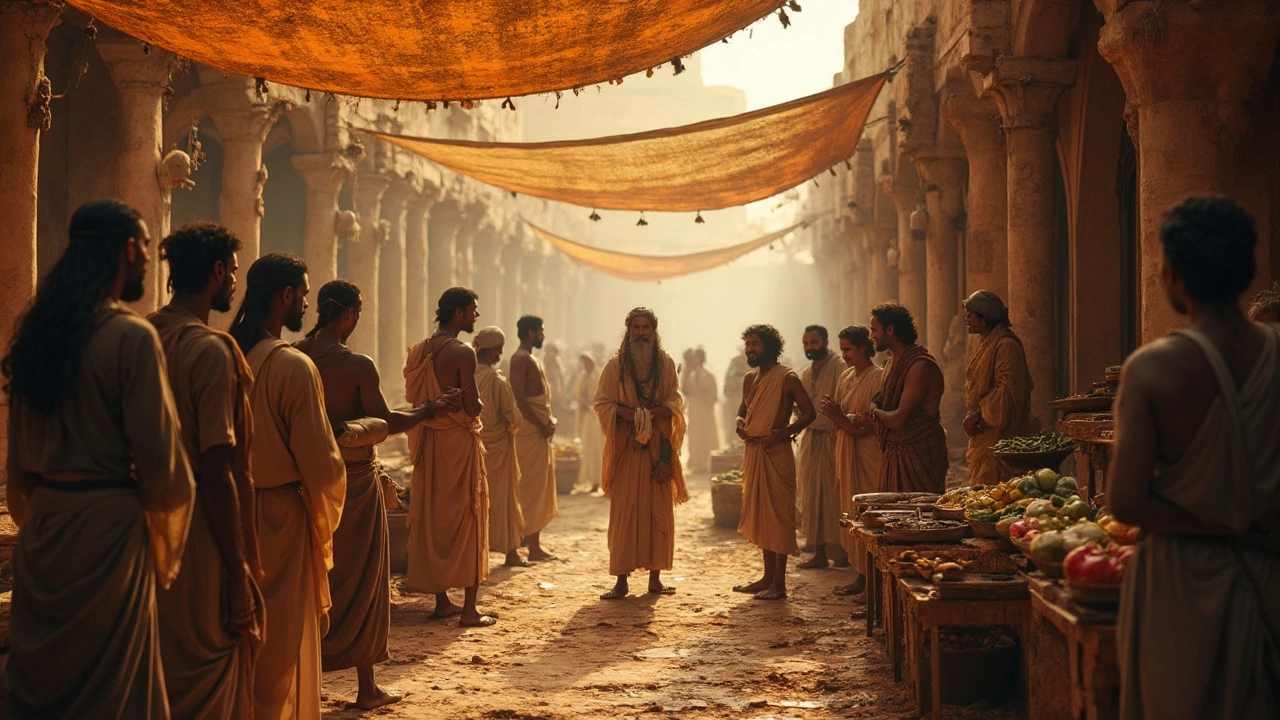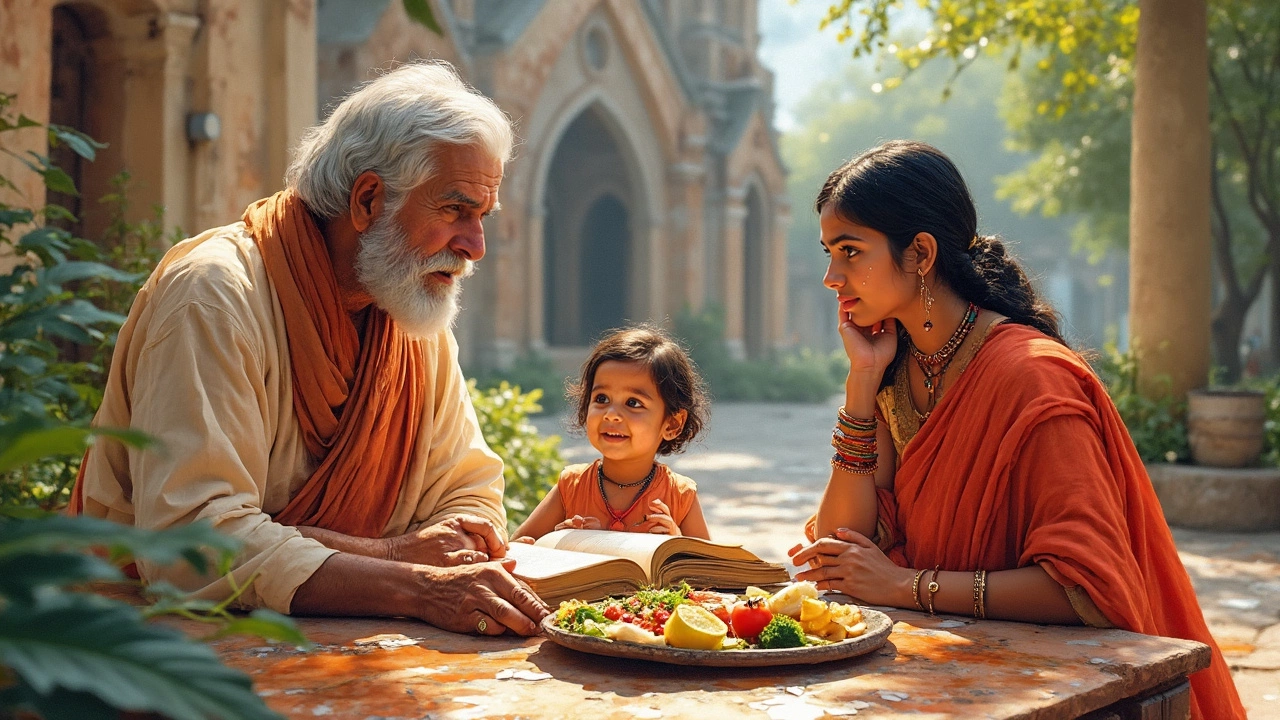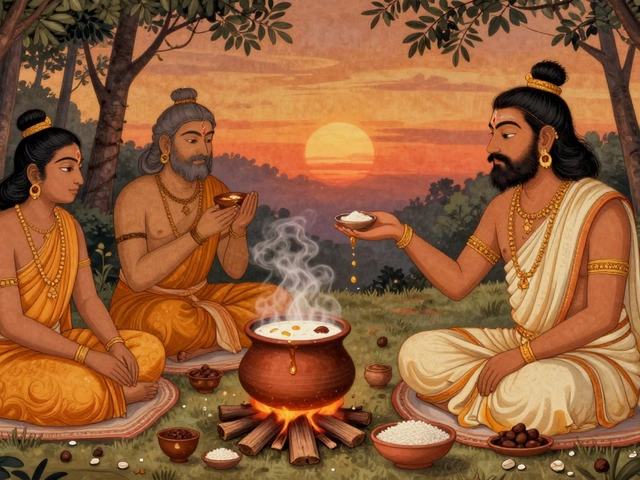Adam and Eve weren’t grilling steak in paradise. That’s not just a wild guess; Genesis actually opens with a surprise twist when it comes to what the first humans ate. For anyone who’s heard people claim God told us all to be vegetarians, there’s a lot more nuance and even a few curveballs in the Bible than most realize. So, if you’ve ever wondered if Christianity secretly leans plant-based, let's peel back the layers (pun intended) and dig into what scripture really says about vegetarianism.
What Does Genesis Say About God’s Original Diet?
There’s this curious moment right at the very start of the Bible. Genesis 1:29 spells out, nearly word-for-word, a plant-based menu: “Then God said, 'I give you every seed-bearing plant on the face of the whole earth and every tree that has fruit with seed in it. They will be yours for food.'” Read that again; it’s not suggesting—God is basically giving humans an all-access pass to the vegetable and fruit aisle. There's no mention of herding cattle or roasting lamb. That’s the world’s first food guideline, and it’s explicitly vegetarian. For people looking for the most straightforward answer to whether the Bible says to be vegetarian—yup, Genesis absolutely starts off that way.
Of course, anyone who’s even skimmed the rest of Genesis knows things change fast. After the flood, God strikes a new deal in Genesis 9:3 and says: “Everything that lives and moves about will be food for you. Just as I gave you the green plants, I now give you everything.” That “now” is huge. Basically, God expands the menu to include steak, chicken, and, well, everything. But just like a parent saying “sure, have dessert tonight,” this shift doesn’t erase the earlier guideline; it just adds to it.
Scholars sometimes argue this was a matter of survival—the world after the flood wasn’t as easy to farm or forage in. So, context matters. For early Christians and Jews who read these verses, it set a precedent. Plant-based eating is baseline. Meat? A later addition, not the original plan. Do modern Christians have to stay vegetarian based on Genesis? Not strictly. But there’s no denying, God’s first word on food was entirely plant-powered.
Other Old Testament Passages: Sacrifice, Feasts, and Daniel’s Diet
The Old Testament isn’t shy about mixing religious rituals and meals. Animal sacrifice was central to ancient Jewish worship. Every Passover, lamb was practically required. So, anyone hoping to find an ironclad commandment to be vegetarian will hit a snag in Exodus and Leviticus. These books set out all kinds of instructions for handling, sacrificing, and eating animals. But they’re not really about everyday diets—they’re about worship and tradition.
Here’s where things get interesting. The Book of Daniel tells the story of Daniel and his friends in Babylon refusing to eat the king’s rich food (which included meat and wine). Instead, Daniel 1:12 reports, they ask, “‘Please test your servants for ten days: Give us nothing but vegetables to eat and water to drink.’” Spoiler: Daniel and his friends end up healthier and sharper than all the other royal trainees. Historically, this bit is often used by people considering a Christian or biblical vegetarian lifestyle as evidence—it’s not just allowed, but perhaps even beneficial. A 2023 Pew Research Center survey found nearly 7% of American Christians have tried a “Daniel fast” for health or faith reasons. The Daniel fast is still a real trend.
What about Proverbs? Wisdom literature is peppered with lines like, “Better a meal of vegetables where there is love than a fattened ox with hatred” (Proverbs 15:17). It’s tongue-in-cheek but gets at the same theme: food isn’t just about what’s on the plate but also the spirit behind the meal. So, while the law doesn’t say “don’t eat meat,” it does give plant-based living quite a few honorable mentions.

The New Testament View: Jesus, Paul, and Early Christians
Jump ahead to the New Testament and the menu gets even messier (in a good way). Jesus wasn’t a food snob. He famously fed crowds with bread and fish—think of the loaves and fishes miracle. But he also celebrated Passover with lamb, as was Jewish custom. At no point does Jesus say being vegetarian is required for following him.
The Apostle Paul enters the chat with even more nuance. In Romans 14:2-3, Paul addresses early Christian debates about what’s OK to eat: “One person’s faith allows them to eat anything, but another, whose faith is weak, eats only vegetables. The one who eats everything must not treat with contempt the one who does not, and the one who does not eat everything must not judge the one who does.” Paul is all about not policing each other’s plates. People in the early church were genuinely divided. Some, influenced by Greek philosophy or Jewish law, preferred meatless meals. Paul’s take? Don’t make it a battle. In a sense, he prohibits food shaming before that was even an expression.
If you keep reading in 1 Timothy 4:3-4, Paul warns against anyone who “forbids people to marry and orders them to abstain from certain foods, which God created to be received with thanksgiving...” He isn’t pro-vegetarian or pro-meat—he’s pro-gratitude and, above all, pro-community. Early Christianity was about adapting to local customs while respecting others' convictions. So, no one is required to be vegetarian, and no one gets to boast about their carnivore status either.
How Ancient Diets Shaped the Conversation
Step back from the text for a second. What did ancient people actually eat? Archeological digs give us a window into ancient food culture. For example, a typical Israelite’s daily meal around 1000 BCE was shockingly close to a modern Mediterranean diet—think lots of bread (sometimes made of barley), fruits like figs and dates, lentils, beans, and olive oil. Meat was a luxury, usually reserved for sacrifices or special occasions. Archaeologists have found fewer animal bones in ancient trash heaps than you might expect if meat had been an everyday staple.
Here’s an interesting data point: In a study published by the Biblical Archaeology Review, researchers analyzed stable isotope ratios in ancient skeletons and found that over 80% of common people ate far more plant-based than animal-based food. Meat was a “festival food,” while day-to-day meals were all about grains and veggies. Even in the New Testament era, Roman Christians or Jewish believers in Jerusalem would probably eat a plant-based dish more nights than not. This wasn’t just theological—it made economic sense. Livestock were valuable, not just for eating, but for farming, milk, and wool.
| Food Type | % of Ancient Israelite Diet |
|---|---|
| Grains & Bread | 50% |
| Fruits & Veggies | 30% |
| Legumes & Beans | 10% |
| Meat & Fish | 5% |
| Oils & Fats | 5% |
So even without a law making them vegetarians, most people in biblical times weren’t eating as much animal protein as a 2025 American. Their reality was more lentil stew and fresh bread than barbecue. Fast forward to the 21st century, a lot of people use these historic patterns as motivation for modern Christian vegetarian diets—sometimes called “Edenic diets,” referencing that first Genesis mandate.

Contemporary Christian Vegetarianism: Why The Debate Still Matters
So, does the Bible tell you to be vegetarian? In a word: No. But it does offer a foundation that plenty of modern believers find compelling. Groups like the Christian Vegetarian Association, founded in 1999, point back to Genesis for inspiration. They argue that honoring the “peace of Eden” includes caring for animals and the planet. Pope Francis, in his 2015 encyclical “Laudato Si’,” didn’t call on Catholics to quit meat—but he did say a plant-forward diet helps creation care. And leading theologians like N.T. Wright suggest Christians at least take Genesis 1:29 seriously, asking what “dominion” really means if it’s modeled after God’s stewardship, not exploitation.
Here’s a practical twist: more Christians are trying plant-based “Daniel fasts” or veggie Lent pledges every year. According to a 2024 survey by Barna Group, 12% of young evangelical Christians report adopting a vegetarian or vegan diet out of faith convictions. This is a small but growing group—one that’s gotten more visible as issues like animal welfare, climate, and global hunger come into play.
If you’re on the fence and want to see what a plant-based week inspired by the Bible looks like, here are a few tried-and-true tips:
- Try the “Daniel” meal plan for 10 days—focus on beans, lentils, whole grains, fruits, and veggies.
- Celebrate a weekly “meatless Sabbath” as a spiritual discipline.
- Find a balance: there’s no competition, just a chance to eat more like the early Israelites now and then.
- When reading labels, look for simple ingredients—the kind you can imagine Adam or Eve actually picking or growing.
One thing is clear: what you eat can connect you to your faith in fresh ways, but it doesn’t define your faith. If you believe Genesis is the blueprint, plant-based life has deep roots in scripture. If you love brisket, there’s no judgment—seriously, Paul said so. No matter your choice, there’s room at the table. And that might be the most biblical answer of all.


